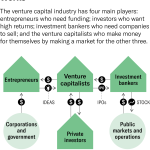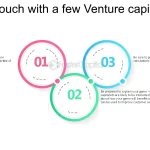Venture capital (VC) associates play a critical role in identifying and sourcing promising investment opportunities for their firms. The process of deal sourcing is both an art and a science, requiring a blend of strategic networking, market research, and proactive outreach. Associates leverage a variety of channels, including personal connections, industry events, and digital platforms, to uncover startups with high growth potential. Additionally, they often collaborate with accelerators, incubators, and other venture capitalists to gain access to a broader pipeline of deals. This article explores the methods and strategies VC associates use to source deals, shedding light on the behind-the-scenes efforts that drive successful investments.
- How Do Associates at Venture Capital Firms Source Deals?
- Strategies Venture Capital Associates Use to Source High-Potential Deals
- Frequently Asked Questions from Our Community
- What methods do venture capital associates use to source deals?
- How important is a strong network in deal sourcing for venture capital associates?
- Do venture capital associates rely on inbound or outbound deal sourcing?
- What role does data and technology play in deal sourcing for venture capital associates?
How Do Associates at Venture Capital Firms Source Deals?
Associates at venture capital (VC) firms play a critical role in sourcing deals, which is the process of identifying and evaluating potential investment opportunities. This involves a combination of networking, research, and strategic outreach to find startups that align with the firm's investment thesis. Below, we explore the key methods and strategies used by VC associates to source deals effectively.
1. Leveraging Professional Networks
One of the most common ways VC associates source deals is through their professional networks. This includes connections with entrepreneurs, angel investors, other venture capitalists, and industry experts. By attending industry events, conferences, and startup pitch competitions, associates can meet founders and learn about emerging companies. Additionally, maintaining strong relationships with accelerators and incubators can provide early access to promising startups.
See Also How Do Venture Capital Firms Work?
How Do Venture Capital Firms Work?2. Utilizing Online Platforms and Databases
VC associates often use online platforms and databases to identify potential investment opportunities. Tools like Crunchbase, AngelList, and PitchBook provide detailed information about startups, including their funding history, team, and growth metrics. These platforms allow associates to filter and search for companies that match their firm's investment criteria, such as sector, stage, and geography.
3. Engaging with Startup Communities
Engaging with startup communities is another effective strategy for sourcing deals. This includes participating in online forums, social media groups, and local meetups where entrepreneurs share their ideas and seek feedback. By being active in these communities, VC associates can identify innovative startups and build relationships with founders before they formally seek funding.
4. Collaborating with Universities and Research Institutions
Many VC firms collaborate with universities and research institutions to source deals. These institutions are often hubs of innovation and entrepreneurship, producing cutting-edge technologies and startups. Associates may attend university demo days, research symposiums, or partner with technology transfer offices to gain access to early-stage companies with high growth potential.
See Also Do Financial Marketers Like Michael Robinsons Strategic Tech Investor or Money Map Report Actually Live Up to Their Hype
Do Financial Marketers Like Michael Robinsons Strategic Tech Investor or Money Map Report Actually Live Up to Their Hype5. Analyzing Market Trends and Industry Reports
VC associates also rely on market trends and industry reports to identify promising sectors and startups. By analyzing data on emerging technologies, consumer behavior, and market gaps, they can pinpoint areas with high growth potential. This approach helps them stay ahead of the curve and invest in startups that are well-positioned to capitalize on future trends.
| Method | Key Activities | Outcome |
|---|---|---|
| Professional Networks | Attending events, building relationships | Access to high-quality deals |
| Online Platforms | Using Crunchbase, AngelList, PitchBook | Efficient deal sourcing |
| Startup Communities | Engaging in forums and meetups | Early-stage opportunities |
| Universities | Collaborating with research institutions | Access to innovative startups |
| Market Trends | Analyzing reports and data | Identifying high-growth sectors |

Strategies Venture Capital Associates Use to Source High-Potential Deals
1. Leveraging Professional Networks for Deal Flow
One of the most effective ways venture capital associates source deals is by leveraging their professional networks. These networks often include entrepreneurs, angel investors, industry experts, and other venture capitalists. By maintaining strong relationships within these circles, associates gain access to early-stage opportunities that may not be publicly advertised. Networking events, conferences, and industry meetups also serve as fertile ground for discovering promising startups. Additionally, associates often rely on referrals from trusted contacts, as these recommendations carry a level of credibility and reduce the risk of investing in unvetted opportunities.
2. Scouting Startup Accelerators and Incubators
Startup accelerators and incubators are hotspots for venture capital associates looking to source deals. These programs often nurture high-potential startups by providing them with mentorship, resources, and funding. Associates frequently attend demo days hosted by accelerators like Y Combinator, Techstars, and 500 Startups, where startups pitch their ideas to potential investors. By engaging with these programs, associates can identify innovative companies at an early stage and build relationships with founders before they gain widespread attention. This proactive approach allows venture capital firms to secure exclusive deals and gain a competitive edge.
See Also How Do You Get in Touch With Venture Capitalists?
How Do You Get in Touch With Venture Capitalists?3. Utilizing Online Platforms and Databases
In the digital age, venture capital associates increasingly rely on online platforms and databases to source deals. Platforms like AngelList, Crunchbase, and PitchBook provide comprehensive information about startups, including their funding history, team members, and growth metrics. These tools enable associates to filter and identify companies that align with their firm's investment thesis. Additionally, social media platforms like LinkedIn and Twitter are valuable for tracking industry trends and discovering startups that are gaining traction. By combining data-driven insights with qualitative analysis, associates can make informed decisions about which opportunities to pursue.
4. Building Relationships with Universities and Research Institutions
Universities and research institutions are often breeding grounds for cutting-edge innovation. Venture capital associates frequently collaborate with these institutions to identify emerging technologies and academic spin-offs. By attending tech transfer office meetings, research symposiums, and university-sponsored competitions, associates can connect with student entrepreneurs and researchers who are developing groundbreaking solutions. These relationships not only provide access to early-stage deals but also allow venture capital firms to support the commercialization of scientific breakthroughs and disruptive technologies.
5. Engaging with Industry-Specific Events and Conferences
Industry-specific events and conferences are critical for venture capital associates looking to source deals in niche markets. Whether it's a healthcare summit, a fintech conference, or a clean energy expo, these gatherings bring together innovators, investors, and thought leaders from a particular sector. Associates use these events to stay updated on market trends, identify emerging players, and engage in meaningful conversations with founders. By focusing on sector-specific opportunities, venture capital firms can build a diverse portfolio that aligns with their strategic goals and risk appetite.
See AlsoFrequently Asked Questions from Our Community
What methods do venture capital associates use to source deals?
Venture capital associates employ a variety of methods to source deals, including networking, attending industry events, and leveraging online platforms. Networking is one of the most effective ways to find promising startups, as it allows associates to build relationships with entrepreneurs, other investors, and industry experts. Attending conferences, pitch events, and demo days also provides opportunities to discover new ventures. Additionally, many associates use platforms like AngelList, Crunchbase, and LinkedIn to identify and connect with startups seeking funding.
How important is a strong network in deal sourcing for venture capital associates?
A strong network is absolutely critical for venture capital associates when sourcing deals. Many of the best investment opportunities come through referrals from trusted contacts, such as other investors, founders, or advisors. Building and maintaining a robust network ensures that associates are among the first to hear about promising startups. Additionally, a well-established network can help associates validate the credibility and potential of a startup by providing insights from those who have worked with the founders or understand the market.
Do venture capital associates rely on inbound or outbound deal sourcing?
Venture capital associates typically use a combination of inbound and outbound deal sourcing strategies. Inbound sourcing involves startups reaching out directly to the firm, often through cold emails or introductions. While this can yield opportunities, associates also actively engage in outbound sourcing by proactively seeking startups that align with their investment thesis. This may involve researching emerging trends, attending industry-specific events, or reaching out to founders directly. A balanced approach ensures a steady pipeline of potential deals.
See Also Do Multi Billionaires Like Bill Gates Have the Financial Pontential to Eliminate Poverty in Small Countries in the Twinkling of an Eye
Do Multi Billionaires Like Bill Gates Have the Financial Pontential to Eliminate Poverty in Small Countries in the Twinkling of an EyeWhat role does data and technology play in deal sourcing for venture capital associates?
Data and technology play a significant role in modern deal sourcing for venture capital associates. Tools like artificial intelligence and machine learning are increasingly used to analyze market trends, identify high-growth sectors, and pinpoint startups with strong potential. Platforms such as PitchBook and CB Insights provide valuable data on startup performance, funding rounds, and competitive landscapes. By leveraging these tools, associates can make more informed decisions and focus their efforts on the most promising opportunities.
Leave a Reply


Our Recommended Articles